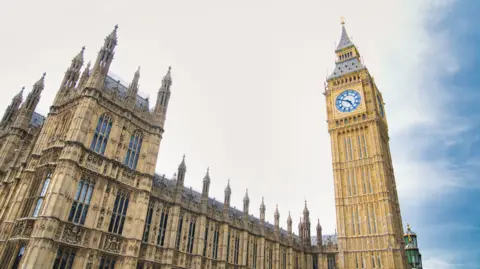**Reeves’s Spending Priorities Leave Little Room for Flexibility**
In the realm of political discourse, the term “Spending Review” may not elicit immediate excitement for the average citizen. However, the implications of Chancellor Rachel Reeves’s upcoming announcements will significantly impact life in the United Kingdom in the foreseeable future. This Spending Review could very well be a pivotal moment before the next general election, as it dictates the financial allocations for essential services including health, defense, education, and public safety agencies such as police, prisons, and courts. The government’s decisions today will determine the winners and losers as budget allocations unfold in the coming years, provoking essential discussions around public priorities.
Expectations surrounding Chancellor Reeves’s announcements hinge largely on narratives of national rejuvenation. After a year dedicated to addressing foundational issues—translated as addressing demanding tax hikes like increased national insurance contributions—the government aims to set off on a trajectory of renewal for Britain. Yet awareness looms regarding the government’s dwindling popularity, stemming from the last summer’s elections, where they only secured 34% of the vote. Consequently, Reeves may project optimism, suggesting that the government is revitalizing Britain while also recognizing the discomfort many citizens experience amid transitional changes.
Central to this Spending Review is the need for financial stability, which will be highlighted by Reeves as she reflects on her attendance at a recent G7 finance ministers meeting in Canada. Notably, she ranks as one of the longest-serving members in the room, symbolizing the importance of consistent leadership within a globally volatile landscape. One of the most pressing concerns addressed by economic analysts, including the Institute for Fiscal Studies (IFS), relates to the NHS, which accounts for nearly 40% of governmental spending. How much the healthcare sector receives directly affects the efficacy of other funded areas. Historically, the NHS has benefited from comparatively more favorable budgets; however, the government’s desire to simultaneously increase defense spending complicates matters within a framework of restrained economic growth.
The realities obscured by the grandiosity of governmental talk call for a more nuanced evaluation of budgets. Paul Johnson, the outgoing director of the IFS, encapsulated the potential consequences by asserting this Spending Review might be one of the tightest in contemporary history, barring the austerity measures observed in the early 2010s. Throughout preceding weeks, the government has sought to emphasize the components of its strategy it can market effectively, notably in the area of long-term infrastructure investments like transportation and nuclear power. As further details unfold, the focus will remain on which governmental budgets will face allocation cuts and to what degree.
Engaging with Labour MPs, the government has endeavored to carve out a narrative that galvanizes party support and compliance. By offering insights into upcoming spending plans, the chancellor aims to equip MPs with talking points that convey progress within their constituencies. Despite welcoming long-term investments, Labour representatives are acutely aware of the precariousness of the current political landscape and the pressing need for rapid delivery of results to constituents who demand satisfaction with government efficacy.
Concerns regarding the promise of “a decade of national renewal” remain amid fears that electoral tides may shift prior to witnessing tangible outcomes. An intrinsic understanding of critiques related to squeezed budgets parallels an evident strategy within the Treasury to counteract claims of austerity. To this end, efforts branded as a “war on graphs” aim to emotionally resonate with voters while portraying a financial upswing by linking capital with everyday spending.
As the clock ticks down towards the Spending Review, it is crucial to recognize the political atmosphere in which these changes are considered. A limited growth economy juxtaposed with an electorate seeking swift validation poses a formidable challenge. Ultimately, Reeves’s determined focus on the NHS and defense, while concurrently adhering to self-imposed economic guidelines, leaves little latitude for fiscal maneuvering—ensuring that the path ahead will be fraught with complexities and public scrutiny.



